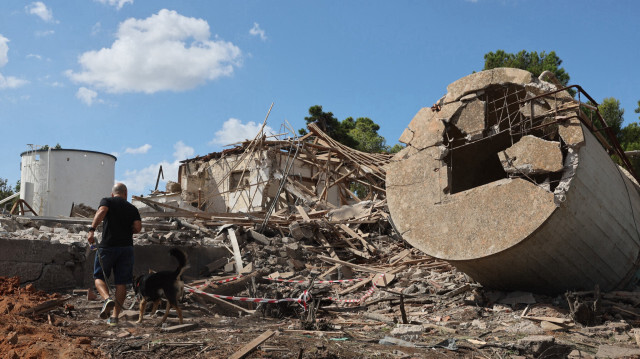
'Jeremy Loffredo, a 28-year-old independent journalist from the US, was detained by Israeli authorities,' reports media
An American journalist was arrested in Israel on charges of "endangering national security" for reporting on several airbases hit by Iranian missile strikes earlier in October, according to media reports.
The Walla news website reported on Friday that "Jeremy Loffredo, a 28-year-old independent journalist from the US, was detained by Israeli authorities."
Israel has imposed strict censorship on media coverage of the ongoing conflict, including missile strike locations, launch sites, troop movements, and activity near the Gaza and Lebanon borders.
According to the news outlet, Loffredo was arrested on suspicion of "endangering national security by reporting the locations of missile impacts from an Iranian attack earlier this month, including Israel's Nevatim Airbase and an intelligence base in central Israel."
Loffredo is currently on trial in an Israeli court in Jerusalem for reporting on Iranian missile strikes on several Israeli airbases.
The news website also reported that "the charges against him include aiding the enemy during wartime and providing information to the enemy."
He was brought before a court in Jerusalem, where the police requested that Loffredo's custody be extended for further questioning. Officials from the US Embassy were present in the courtroom.
Given the journalist's status as a foreign correspondent, the US government is reportedly concerned about a potential diplomatic strain over his arrest.
Loffredo's attorney, Leah Tsemel, said in her arguments to the court that he "published the information openly and completely, without attempting to conceal anything. If this information is useful to the enemy, many other Israeli journalists, including Israeli reporters, should be arrested."
“A spy would not have acted in such a public and transparent manner,” she stressed in her argument.
On October 1, Iran launched approximately 180 missiles in retaliation for the assassination of former Hamas political bureau chief Ismail Haniyeh in Tehran, Hezbollah Secretary-General Hassan Nasrallah, and Iranian Revolutionary Guards Corps commander Abbas Nilforoushan.
The Israeli army later acknowledged that the missile attack caused damage to some of its air bases, asserting that preparations for retaliation against Tehran were ongoing.
Iran has defended its actions, citing Article 51 of the UN Charter, which affirms member states' right to use force in self-defense against armed attacks.

